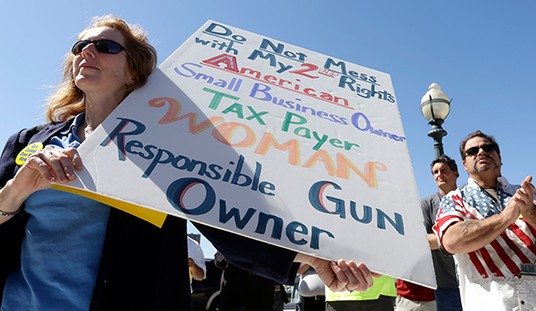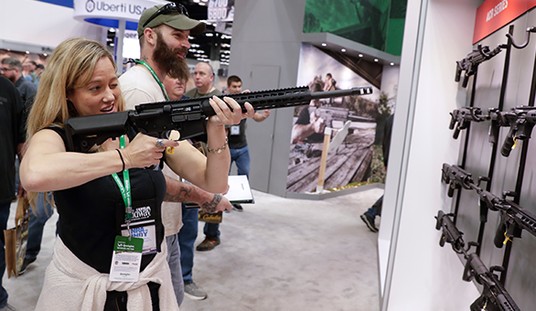Gun control supporters in South Carolina are attempting to exploit the murders of nine black church members by a white supremacist to push for more gun control even though the bill they’re pushing would have done nothing to stop the massacre.
Advocates of tighter background checks before gun purchases will converge on the State House Thursday, urging lawmakers to close the so-called “Charleston loophole.”
That loophole helped lead to the slaying of nine Charleston church members, gunned down during a Bible study last year, advocates of tighter gun-control laws say.
Accused shooter D___ R___*, charged with murder in the slayings, was able to buy a gun even though a background check had not been completed.
Authorities now have three days to complete background checks, intended to screen out would-be gun buyers who have criminal records. If a check is not completed within three days, however, a would-be purchaser can go ahead and buy a gun.
The pathetic pile of human waste who carried out this attack wasn’t able to get his gun (a Glock 41, for those who care) because the NICS background check system failed. He got his gun because of two completely different kind of failures within government.
As we noted in our initial report yesterday, the NICS background check system didn’t fail. Based upon what the FBI director has made public, there were two failure points.
Multiple Data Entry Failures
At the local level, for reasons that still remain unclear, the wrong arresting agency was listed for the suspect’s drug charge.
This data entry was compounded when because the list of law enforcement agencies in South Carolina used by NICS in their investigations was incorrect due to another data entry error.
ATF Retrieval Failure
When I worked retail in a gun shop, we once had a customer who was delayed, and who later returned to pick up his firearm after the three-day deplay period had expired. NICS determined the following day that he should have been considered a prohibited person, and sent ATF agents to our store to pull his form 4473, and then went to retrieve the firearm within 48 hours.
In this instance in south Carolina, the suspect waited five days—nearly doubling the amount of time investigators had to investigate his history—before picking up the handgun, on April 16, 2015.
62 days after picking up his firearm, and 67 days after submitting his information to the FBI NICS, the killer carried out his attack.
These advocates want to dramatically increase the amount of time the government has to process a background check from 3 days to 28 days, without understanding the basic fact that increased time doesn’t change bad data. It’s either correctly put into the system or it isn’t.
The changes they are advocating because of this incident are changes that would not have stopped this incident.
As we’ve documented previously, the information that would have stopped a sale was not put into the database as it should have been. Once he got the gun, it was in his possession for more than twice as long as the advocates thing the new system should have before he carried out the attack.
If these lawmakers care more about saving lives than simply restricting rights, then the need to drop this legislation and radically rethink their approach.
The intelligent thing to do would be to pass bills specifically allocating more funding for data entry, so that the NICS database gets the information it needs to block people from being able to buy guns through gun stores.
It’s not flashy, it’s not politically “sexy,” but is is without a doubt the single most important thing these legislators should be doing if they want the background check system to work as designed.
Increased time doesn’t change bad or incomplete data, and these lawmakers clearly have no idea what they are doing.
* Bearing Arms does not publish the names of mass or spree killers.








Join the conversation as a VIP Member